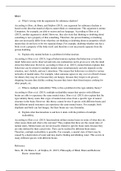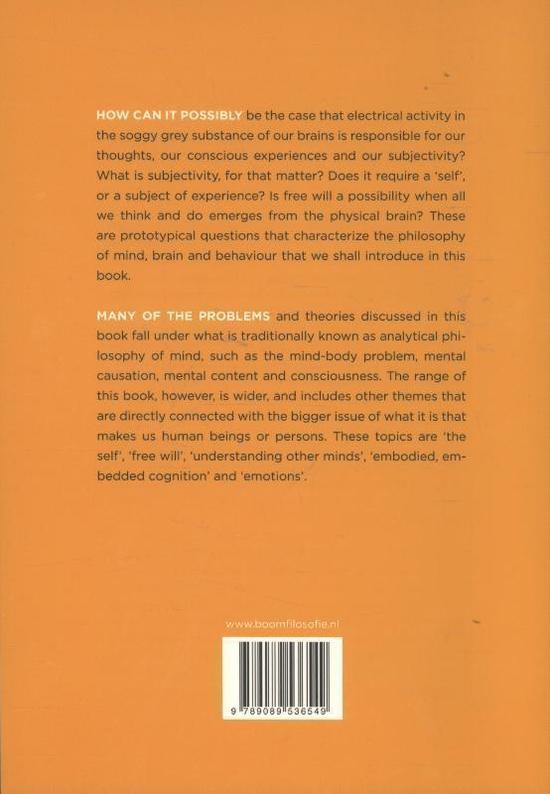SSA1
a) What’s wrong with the arguments for substance dualism?
According to Slors, de Bruin, and Strijbos (2015), one argument for substance dualism is
based on the idea that material objects cannot think or communicate. This argument is untrue.
Computers, for example, are able to reason and use language. According to Slors et al.
(2015), another argument is doubt. However, they also state that thinking or doubting about
something is not a property of that something. Therefore, the person thinking or doubting
does not necessarily differ from what they are thinking or doubting about in properties which
means they do not have to be two separate things. For example, doubting whether one has a
body is not a property of the body itself, and therefore is not necessarily separate from the
person doubting.
b) Explain why mental holism is a problem for behaviourism.
According to Slors et al. (2015), logical behaviourism explains that behaviour reveals the
mind; behaviour can be observed and only one explanation can be given as to why the mind
chose this behaviour. However, according to Slors et al. (2015), mental holism explains that
behaviour can be related to multiple mental states simultaneously and also depends on the
situation, one’s beliefs, and one’s intentions. This means that behaviour is related to various
networks of mental states. For example, when someone agrees to stay over at a friend’s house
for dinner, they may do so because they are hungry, because they forgot to do grocery
shopping, because they dislike cooking, because they know their friend enjoys cooking for
other people, etc.
c) What is multiple realizability? Why is this a problem for the type-identity theory?
According to Slors et al. (2015), multiple realizability means that species with different
brains are able to experience the same mental states. Slors et al. (2015) also explain that the
type-identity theory states that a type of mental state arises from a specific type of neural
structure in the brain. However, this theory cannot be true if species with different brains and
thus different neural structures can experience the same mental states. For example, both
elephants and birds can feel hungry, but their brains are very dissimilar.
d) Explain what functionalism is and how it deals with the problem of multiple
realizability.
According to Slors et al. (2015) functionalism defines mental states in terms of what they do;
what causes them and what is the outcome? They explain that these are the causal roles of
mental states. Mental states are not necessarily related to specific brain states because they
are only defined by their causal roles. They can be realised by different brain states.
Therefore, multiple realizability is possible. For example, a mental state of thirst may be
caused by a deprivation of water and may lead to finding and drinking water. This occurs in
many different species with different brains.
Reference:
Slors, M., De Bruin, L., & Strijbos, D. (2015). Philosophy of Mind, Brain and Behavior.
Boom: Amsterdam






